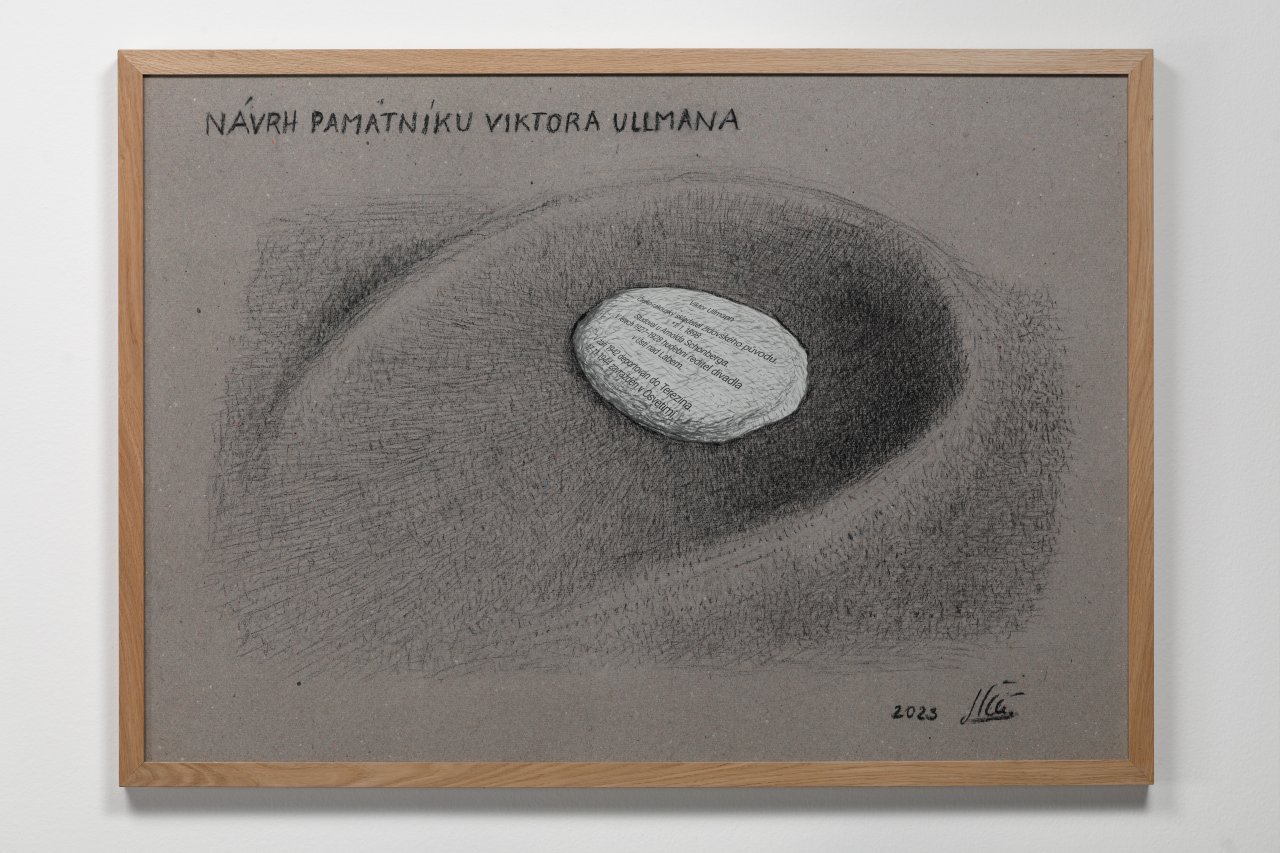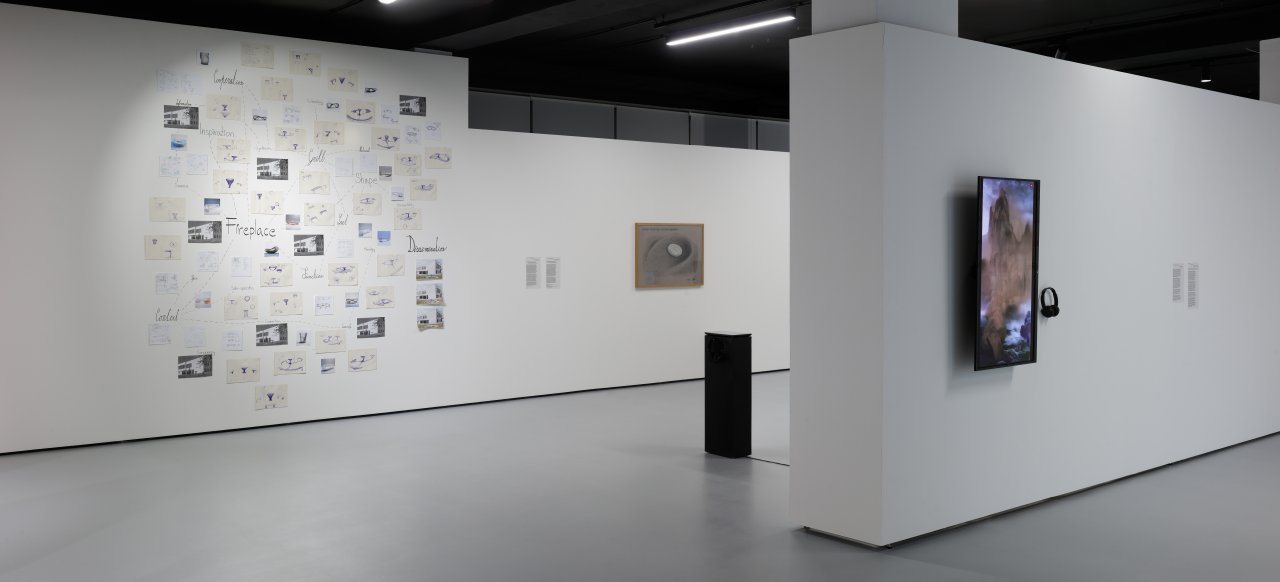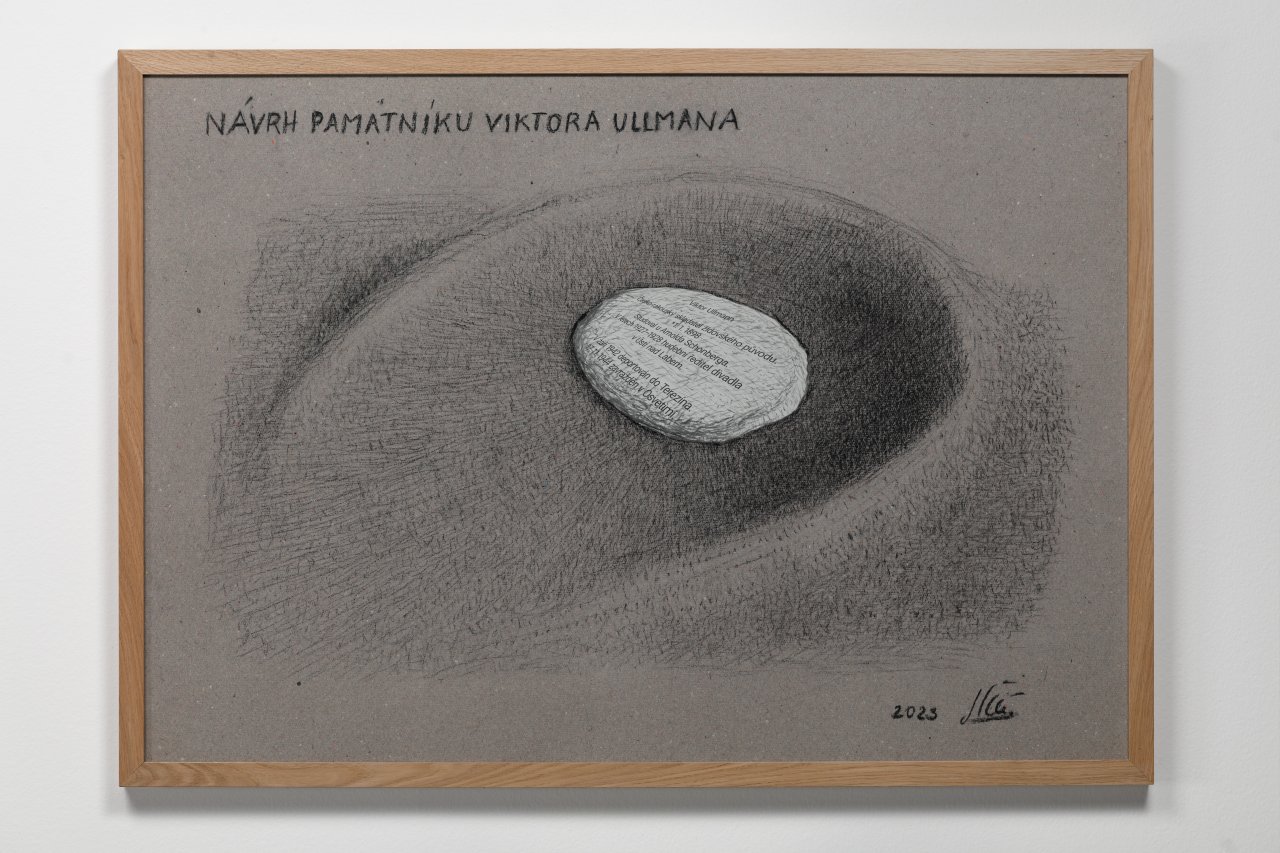Viktor Ullmann Memorial 2023/2024
stone, spatial installation, sketch
In his project prepared for the public space of the Jan Evangelista Purkyně University campus, Jiří Černický focused on reflecting the cultural memory of Ústí nad Labem. In a conceptual, yet monumental object gesture, he recalls the short-lived tenure of one of the key figures of the Central European interwar art scene, Viktor Ullmann, as director of the opera company of the local municipal theatre in 1927-1928. This Czech-Austrian composer was born in 1898 in the then still undivided Těšín and after the end of World War I he first studied briefly in Vienna with the world-famous composer Arnold Schönberg and then moved to Czechoslovakia, where he significantly co-determined the development of contemporary musical life. During his engagement in Ústí nad Labem, he lived in one of the tenement houses in the Klíše district, where the centre of the university campus is located. After the occupation of Czechoslovakia by Nazi Germany, Viktor Ullmann was persecuted as a member of the Jewish community and deported to the Terezín ghetto in 1942. There, he became part of the Terezín composers’ circle, continued to create art, and organized a rich underground cultural life through which the men, women, and children imprisoned there tried to confront the brutality of their tormentors.
After Nazi Germany occupied Czechoslovakia, Viktor Ullmann was persecuted as a member of the Jewish community and deported to the Terezín ghetto in 1942. On 16 October 1944, Viktor Ullmann, together with other Jewish composers Pavel Haas and Hans Krása, was transported to Auschwitz in the so-called “artistic transport” and murdered in the gas chamber shortly after his arrival.
Designed by Jiří Černický, the memorial consists of an oversized stone mound, partially embedded in the ground, similar in shape to those laid in miniature to preserve the memory of the stelae of Jewish graves.Its shape and the distinctive landscaping wave that surrounds it may also perhaps recall the impact of the mysterious meteorite.The stone is recovered from its natural setting and left without further modification. On its rough and undulating surface is carved an inscription referring to the story of Viktor Ullmann’s life and death. This mysterious place, perhaps an archaeological site or a location for scientific research, activates the attention that today and every day faces the destructive expansion of oblivion and inattention to the horrors of the past and their creeping return to the recesses of the present.
Viktor Ullmann
Czech-Austrian composer of Jewish origin
*1. 1. 1898
Studied under Arnold Schönberg.
In 1927-1928 musical director of the theatre in Ústí nad Labem
Deported to Terezín in September 1942
17 October 1944 murdered in Auschwitz


